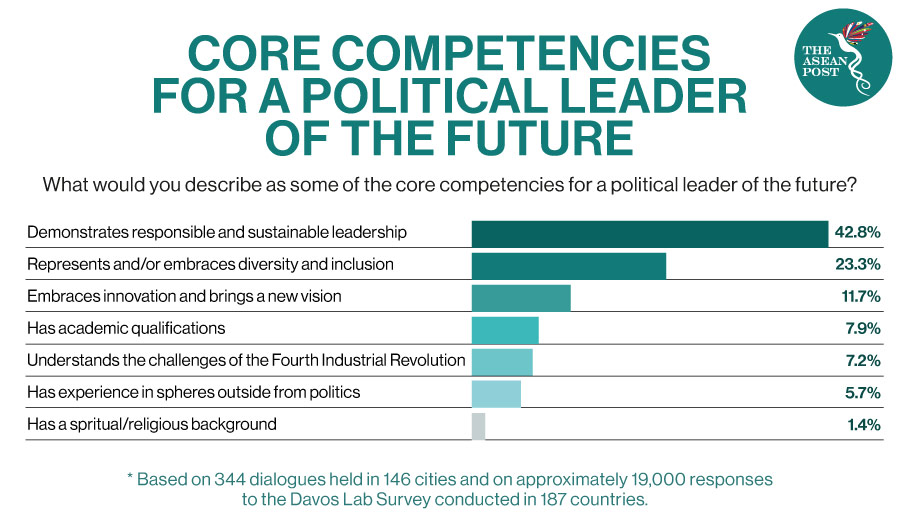Young people today are coming to age in a world beset by crises. Even before the COVID-19 pandemic devastated lives and livelihoods around the world, the socio-economic systems of the past had put the liveability of the planet at risk and eroded the pathway to healthy, happy, fulfilled lives for too many.
The same prosperity that enabled global progress and democracy after the Second World War is now creating the inequality, social discord and climate change we see today - along with a widening generational wealth gap and youth debt burden, too.
For Millennials, the 2008 financial crisis and the Great Recession resulted in significant unemployment, huge student debt and a lack of meaningful jobs. Now, for Generation Z, COVID-19 has caused school shutdowns, worsening unemployment, and mass protests.
Young people are right to be deeply concerned and angry, seeing these challenges as a betrayal of their future.
But we can’t let these converging crises stifle us. We must remain optimistic - and we must act.
The next generation is the most important and most affected stakeholder when talking about our global future – and we owe them more than this. The year 2021 is the time to start thinking and acting long-term to make intergenerational parity the norm and to design a society, economy and international community that cares for all people.
Young people are also the best placed to lead this transformation. In the past 10 years of working with the World Economic Forum’s Global Shapers Community, a network of people between the ages of 20 and 30 working to address problems in more than 450 cities around the world, I’ve seen first-hand that they are the ones with the most innovative ideas and energy to build a better society for tomorrow.
Over the past year, Global Shapers organised dialogues on the most pressing issues facing society, government and business in 146 cities, reaching an audience of more than two million. The result of this global, multistakeholder effort, “Davos Labs: Youth Recovery Plan,” presents both a stark reminder of our urgent need to act and compelling insights for creating a more resilient, sustainable, inclusive world.
One of the unifying themes of the discussions was the lack of trust young people have for existing political, economic and social systems. They are fed up with ongoing concerns of corruption and stale political leadership, as well as the constant threat to physical safety caused by surveillance and militarized policing against activists and people of colour. In fact, more young people hold faith in governance by a system of artificial intelligence than by a fellow human being.

Facing a fragile labour market and almost bankrupt social security system, almost half of those surveyed said they felt they had inadequate skills for the current and future workforce, and almost a quarter said they would risk falling into debt if faced with an unexpected medical expense.
The fact that half of the global population remains without internet access presents additional hurdles. Waves of lockdowns and the stresses of finding work or returning to workplaces have exacerbated the existential and often silent mental health crisis.
So, what would Millennials and Generation Z do differently?
Most immediately, they are calling for the international community to safeguard vaccine equity to respond to COVID-19 and prevent future health crises.
Young people are rallying behind a global wealth tax to help finance more resilient safety nets and to manage the alarming surge in wealth inequality. They are calling to direct greater investments to programmes that help young progressive voices join the government and become policymakers.
To limit global warming, young people are demanding a halt to coal, oil and gas exploration, development, and financing, as well as asking firms to replace any corporate board directors who are unwilling to transition to cleaner energy sources.
They are championing an open internet and a US$2 trillion digital access plan to bring the world online and prevent internet shutdowns, and they are presenting new ways to minimise the spread of misinformation and combat dangerous extremist views. At the same time, they’re speaking up about mental health and calling for investment to prevent and tackle the stigma associated with it.
Transparency, accountability, trust and a focus on stakeholder capitalism will be key to meeting this generation’s ambitions and expectations. We must also entrust in them the power to take the lead to create meaningful change.
I am inspired by the countless examples of young people pursuing collective action by bringing together diverse voices to care for their communities. From providing humanitarian assistance to refugees to helping those most affected by the pandemic to driving local climate action, their examples provide the blueprints we need to build the more resilient, inclusive, and sustainable society and economy we need in the post-COVID-19 world.
We are living together in a global village, and it’s only by an interactive dialogue, understanding each other and having respect for one another that we can create the necessary climate for a peaceful and sustainable world.
